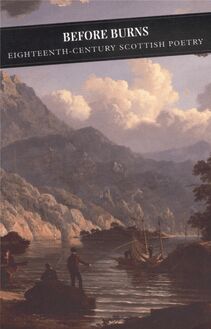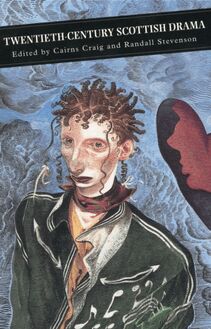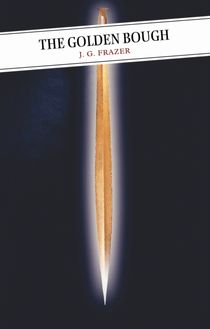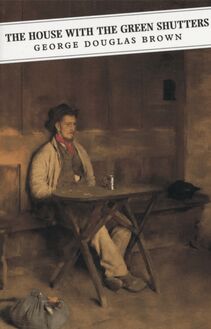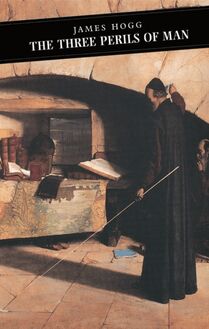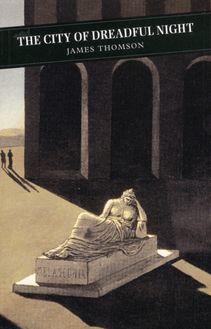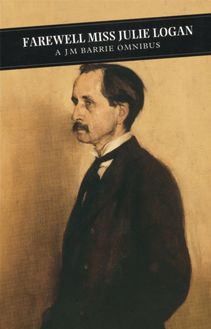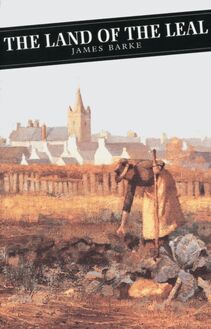-
 Univers
Univers
-
 Ebooks
Ebooks
-
 Livres audio
Livres audio
-
 Presse
Presse
-
 Podcasts
Podcasts
-
 BD
BD
-
 Documents
Documents
-
- Cours
- Révisions
- Ressources pédagogiques
- Sciences de l’éducation
- Manuels scolaires
- Langues
- Travaux de classe
- Annales de BEP
- Etudes supérieures
- Maternelle et primaire
- Fiches de lecture
- Orientation scolaire
- Méthodologie
- Corrigés de devoir
- Annales d’examens et concours
- Annales du bac
- Annales du brevet
- Rapports de stage
La lecture à portée de main
Vous pourrez modifier la taille du texte de cet ouvrage
Découvre YouScribe en t'inscrivant gratuitement
Je m'inscrisDécouvre YouScribe en t'inscrivant gratuitement
Je m'inscrisEn savoir plus
Vous pourrez modifier la taille du texte de cet ouvrage
En savoir plus

Description
Informations
| Publié par | Canongate Books |
| Date de parution | 01 juillet 2010 |
| Nombre de lectures | 0 |
| EAN13 | 9781847674692 |
| Langue | English |
Informations légales : prix de location à la page 0,0600€. Cette information est donnée uniquement à titre indicatif conformément à la législation en vigueur.
Extrait
The Wallace
Blind Harry
Edited and introduced by
Anne McKim
Contents
Title Page Introduction Book One Book Two Book Three Book Four Book Five Book Six Book Seven Book Eight Book Nine Book Ten Book Eleven Book Twelve Appendix Notes Bibliography Acknowledgements About the Author Copyright
Introduction
The historical verdict may be that William Wallace was a failure, but in the popular imagination he has long been venerated as a Scottish national hero and freedom fighter. 1 There can be no doubt that Hary’s The Wallace , written more than a century and a half after the subject’s death, played – and continues to play, though less directly – a major role in promoting Wallace as an icon of Scotland’s first struggle for independence. 2 When the hugely successful film Braveheart was first shown at my local cinema in Hamilton, New Zealand, I received telephone calls from people exercised by what they saw as a Hollywood version of history. Wallace’s supposed relationship with the daughter-in-law of Edward I, and the future Queen of England, was singled out as a particularly blatant example of falsification. The point is, it is a very old, and certainly not a new, falsification, since Blind Harry invented the original story of a meeting between Wallace and Edward’s queen and toyed with the suggestion that the latter may have been a little in love with the Scottish champion.
AUTHOR
We know very little about the author of The Wallace; even his name remains something of a mystery. The Scottish historian John Major, writing in the early sixteenth century, is the first to confirm that ‘the whole book of William Wallace’ was written by a certain Henry or Hary, though whether this was his first or last name is not clear. 3 McDiarmid notes that the surname Hare or Henry (as well as variants such as Henrison) was quite common in the Linlithgow area in the second half of the fifteenth century. He ventures the opinion that the writer was born there or thereabouts around 1440, citing in support what he considers to be evidence in The Wallace of the author’s detailed regional knowledge of Stirlingshire and Perthshire. 4 Others believe that the name Hary, or Blind Harry as he is often called, was an alias or nickname of some poet whose identity may or may not have been known to his contemporaries but who remains otherwise unidentified. 5 The poet William Dunbar simultaneously attested and perpetuated the currency of the name Blind Hary when he registered his death as a recent event in the poem best known as ‘The Lament for the Makars’ (c. 1505).
Harry’s blindness is confirmed both by the royal records and by John Major, although the latter’s claim that the poet was blind from birth has been challenged, particularly by readers who are convinced that only a sighted person could have written the graphic descriptions and detailed topographical accounts that distinguish The Wallace . 6 The richly allusive and highly literary quality of Blind Harry’s writing indicates an educated and widely read man, while a strong respect for reading is also conveyed right from the start of the poem in his references to what readers can learn from books and in his injunctions to his readers to go and read certain books (Book 1, 1, 17, 34, 37; see also Book 7, 613, 1293).
He appears to have been a well-travelled man. The poem provides ample illustration of his detailed geographical knowledge of Scotland, Northern England and parts of France. The detailed accounts of the various routes Wallace follows allow these to be mapped. His excellent military knowledge, especially of battle sites and strategies, and his acute awareness of the need to supply armies with provisions of various kinds led the last editor of his poem to conclude that he must have served as a soldier at some stage.
John Major informs us that Blind Harry recited his poem in the presence of princes. Whether he ever entertained the king in this way we do not now know, although the royal treasury records reveal that between 1490 and 1492 he received gifts of money from the young King James IV on five separate occasions at Linlithgow Palace, indicating that he had connections with the royal court, though in what capacity is not specified. 7 Two of the payments were made at Yuletide, when the king rewarded various court entertainers. He probably died between 1492 and 1494, since there are no further royal payments recorded after 1492 and William Dunbar links his death with that of another poet, Patrick Johnstone, who is known to have died in 1494.
TIME OF WRITING
We can be certain that Blind Harry had completed his poem before 1488, the last year of James III’s reign, because it was copied that year by a scribe called John Ramsay, probably as a commission. Towards the end of his poem Blind Harry acknowledges that he consulted and was influenced in at least one editorial decision by two of his contemporaries, Sir William Wallace of Craigie and Sir James Liddale of Halkerston (12, 1444–46), which pushes the time of composition back into the 1470s, since both were knighted in 1471 and Sir William died in 1479. This was the decade in which James III’s policy of matrimonial alliances with England might explain Blind Harry’s criticism in the poem’s opening lines (1, 5–10) of those who ‘honour ennymyis’. James’s active peace-mongering, including his pursuit of a marriage alliance between his son and Edward IV’s daughter in 1474, was not popular in some quarters and considered too pro-English, especially among the great magnates in the Scottish borders. While there had been sufficient goodwill in 1462 to agree a truce of fifteen years, by the late 1470s relations between the two countries had deteriorated to such an extent that the threat of another outbreak of war was imminent, as armies attacked each other’s borderland in the summer and autumn of 1480. 8
It has been suggested that Blind Harry’s supposed sympathies with Alexander, Duke of Albany, the king’s estranged brother, would account for what has been taken as his criticism of James in the poem’s opening lines. In this connection, McDiarmid notes that one of Blind Harry’s consultants, Sir James Liddale, was Albany’s steward and might be expected to share with his superior and other southern magnates a deep opposition to James’s ‘pro-English’ foreign policy. The roles given to Crawford, ancestor of the out-of-favour magnate, the earl of Crawford, and to Sir Archibald Douglas, forebear of the once mighty fifteenth-century lords of Douglasdale, might also be thus explained.
Blind Harry seems to be particularly knowledgeable about the names of Cumberland, Northumberland and, indeed, Westmoreland, knights who campaigned in Scotland during the Wars of Independence, many of whom bear the names of families known to have been engaged in cross-border warfare throughout the wars. This may indicate a particular familiarity with the border area and local traditions, of the kind a native of the region might have. Hary’s obvious respect for Sir Henry Percy, the Northumberland knight appointed as warden of Ayr and Galloway by Edward I when he established his occupation regime in 1296, contrasts with the characteristically partisan and generally xenophobic attitudes invariably shown to the English in the poem, and may be evidence of the kind of ‘common heroic inheritance’ one quite recent study of fifteenth-century border society has discovered in late medieval border ballads and songs. 9
Blind Harry’s virulent anti-English sentiments and frequent use of vituperation, evident in such terms as ‘curssit Saxonis blud’, have been singled out for attention by previous readers but xenophobia was common on both sides, fostered by nearly two centuries of intermittent war between the neighbouring countries, and almost constant cross-border raids. Medieval chronicles, as well as political songs, provide ample testimony to this. In the late 1470s similar bones of contention as when Edward I invaded in 1296 were present, notably a Scottish king’s refusal to pay homage to an English overlord and the restoration of the ‘auld alliance’ between Scotland and France, negotiated in 1474, which England regarded as provocative.
GENRE
Blind Harry’s composition is best described as a romantic biography. He himself refers to his work as an account ‘of Wallace lyff’ (12, 1410), and within Blind Harry’s lifetime the copyist Ramsay called the work a vita , that is, a life or biography, of the noble knight and champion of the Scots, William Wallace ( vita nobilissimi defensoris Scotie Wilelmi Wallace militis ). 10 All but one of the surviving printed editions until 1705, and the majority of those printed after that, have a title beginning ‘The Life and Acts’. 11
Life writing and encomium, or eulogy, were inextricably inter-twined in the Middle Ages. 12 Since the object was to praise the subject, not to present an objective, let alone a ‘warts and all’ biography, the emphasis was on great and exemplary deeds, and incidents were included, and often embellished, in order to make an ethical impression on the reader. 13 When Blind Harry finally gets round to providing a full physical description of Wallace, towards the end of his narrative (10, 1221–40), it is not a realistic portrait but a highly stylised one modelled on the description of Charlemagne in the very popular History of Charles the Great ( Historia Karoli Magni ), as previous readers have noted. 14 On the other hand, accuracy seems to have been an important consideration when Blind Harry followed convention by including his subject’s genealogy at the outset of his ‘lyff’ (I, 21–34). The narrative then follows an essentially linear trajectory, from Wallace’s birth (the second son of Malcolm Wallace) to his death by execution at the hands of Edward I. After fleeing with his mother to Gowry, he passes his schooldays in occupied Scotland until, as an eight
-
 Univers
Univers
-
 Ebooks
Ebooks
-
 Livres audio
Livres audio
-
 Presse
Presse
-
 Podcasts
Podcasts
-
 BD
BD
-
 Documents
Documents
-
Jeunesse
-
Littérature
-
Ressources professionnelles
-
Santé et bien-être
-
Savoirs
-
Education
-
Loisirs et hobbies
-
Art, musique et cinéma
-
Actualité et débat de société
-
Jeunesse
-
Littérature
-
Ressources professionnelles
-
Santé et bien-être
-
Savoirs
-
Education
-
Loisirs et hobbies
-
Art, musique et cinéma
-
Actualité et débat de société
-
Actualités
-
Lifestyle
-
Presse jeunesse
-
Presse professionnelle
-
Pratique
-
Presse sportive
-
Presse internationale
-
Culture & Médias
-
Action et Aventures
-
Science-fiction et Fantasy
-
Société
-
Jeunesse
-
Littérature
-
Ressources professionnelles
-
Santé et bien-être
-
Savoirs
-
Education
-
Loisirs et hobbies
-
Art, musique et cinéma
-
Actualité et débat de société
- Cours
- Révisions
- Ressources pédagogiques
- Sciences de l’éducation
- Manuels scolaires
- Langues
- Travaux de classe
- Annales de BEP
- Etudes supérieures
- Maternelle et primaire
- Fiches de lecture
- Orientation scolaire
- Méthodologie
- Corrigés de devoir
- Annales d’examens et concours
- Annales du bac
- Annales du brevet
- Rapports de stage
